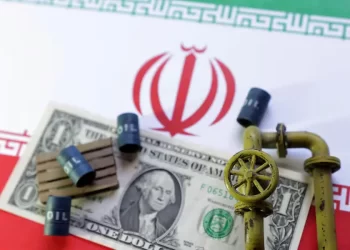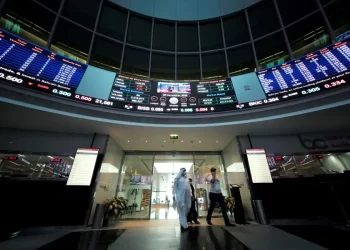Oil prices extended losses in Asia trade on Tuesday, with investors anticipating lingering US inflation and higher interest rates to depress consumer and industrial demand. Brent crude futures fell 57 cents, or 0.68%, to $83.14 a barrel by 0613 GMT.
US West Texas Intermediate crude (WTI) slipped 58 cents, or 0.73%, to $79.22 a barrel.
Both benchmarks fell less than 1% on Monday as US Federal Reserve officials said they were awaiting more signs of slowing inflation before considering interest rate cuts.
“Fears of weaker demand led to selling as the prospect of Fed rate cut became more distant,” said analyst Toshitaka Tazawa at Fujitomi Securities.
Fed Vice Chair Philip Jefferson said on Monday it was too early to tell whether the inflation slowdown is “long lasting,” while Vice Chair Michael Barr said restrictive policy needs more time.
Atlanta Fed President Raphael Bostic said it will “take a while” for the central bank to be confident that a price growth slowdown is sustainable.
All in all, the Fed officials’ comments pointed to interest rates staying higher for longer than markets expect.
That has implications for the oil market as higher borrowing costs tie up funds in a blow to economic growth and demand for crude.
On the other hand, the market appeared little affected by political uncertainty in two major oil-producing countries.
“While there has been an upmove over some uncertainty in Iran, prices have since pared back some gains, as investors price for the status-quo in terms of policies for now and that any wider regional conflict remains off the table,” IG market strategist Yeap Jun Rong said in an email to Reuters.
Iranian President Ebrahim Raisi, a hardliner and potential successor to Supreme Leader Ayatollah Ali Khamenei, was killed in a helicopter crash on Sunday.
Separately, Saudi Arabia’s Crown Prince Mohammed Bin Salman deferred a trip to Japan because of the health of his father, the king.









